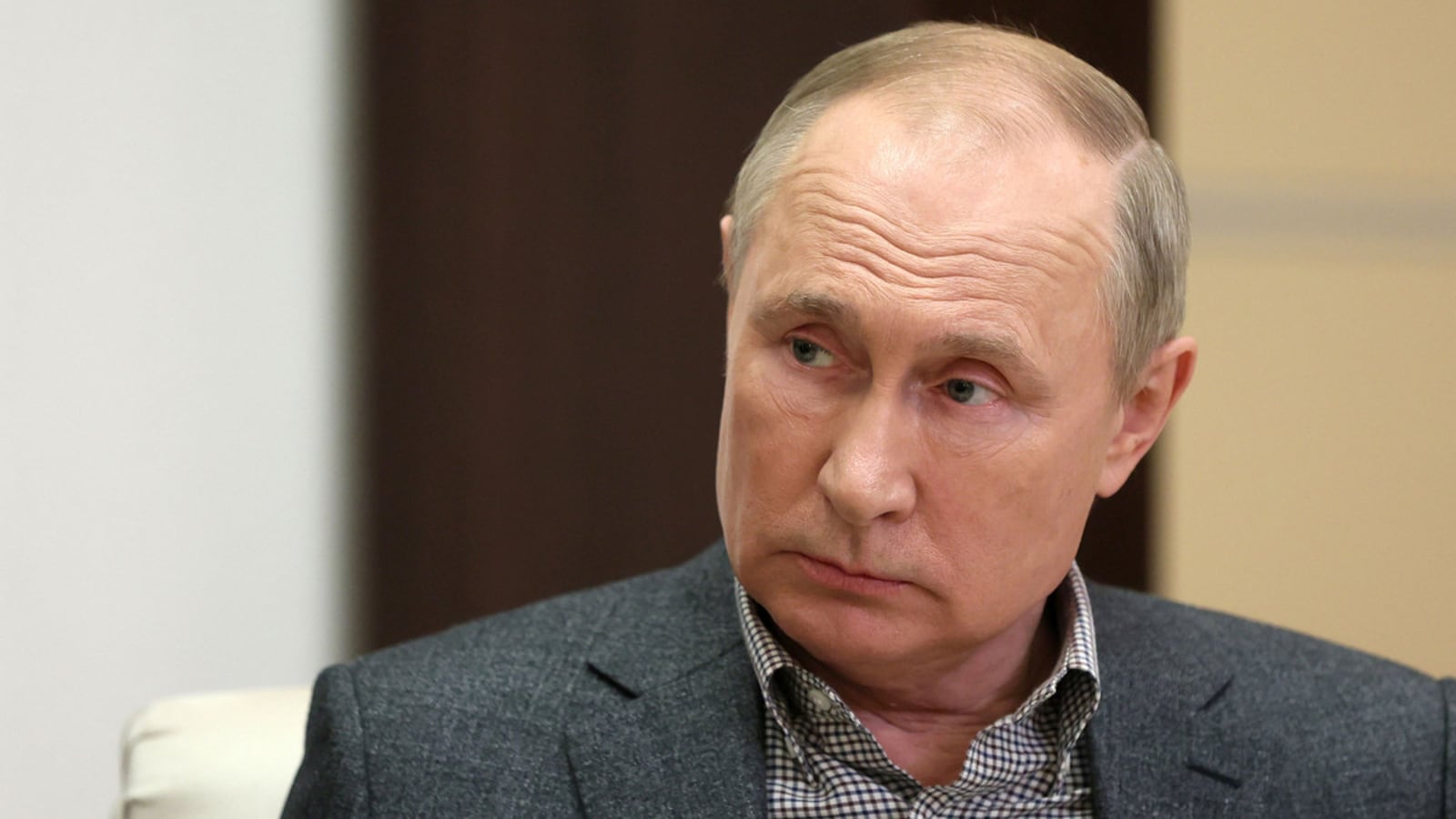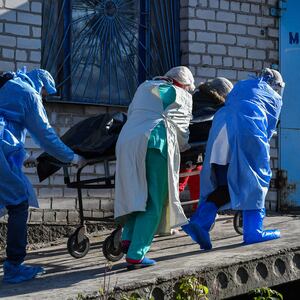Domestic propagandists and state TV pundits are promoting the idea of an inevitable confrontation with the West as Russia’s military posture grows increasingly hostile, causing major concern for its nearest neighbors and NATO. Ukraine remains the crown jewel for the Kremlin and the Russian public is being primed for the intended absorption of more territories under the umbrella of the Russian Federation, while NATO is being accused of fomenting the potential escalation.
“World War III is knocking at our door,” warned one top propagandist.
Whether or not the Kremlin is planning to speed up its creeping assault against Ukraine’s Donbas region in the near future is a mystery even to the most knowledgeable experts with close access to Russian President Vladimir Putin. Nonetheless, they eagerly fulfill the Russian leader’s express intent to keep NATO—and the West in general—in a state of hypervigilance.
Ukraine’s non-affiliation with NATO remains at the top of the Kremlin’s long wish list, with Putin demanding “serious long-term guarantees that ensure Russia’s security” in the region. The real issue is not that NATO presents an acute threat to the Kremlin, but rather that its involvement stands in the way of Russia swallowing additional Ukrainian territories. Putin’s objectives with respect to subverting Ukraine remain the same, with two different paths to getting there: by securing Ukraine’s submission and undermining its sovereignty through unwarranted concessions from the West, or by escalating Russia’s military aggression.
State TV propagandist Dmitry Kiselyov—notorious for boasting that “Russia is the only country in the world that is realistically capable of turning the United States into radioactive ash”—explained that Moscow’s moves are explicitly designed to affect the U.S. and NATO. On his Sunday show, Vesti Nedeli, Kiselyov said that Russia’s tests of its Tsirkon hypersonic cruise missile and its recent anti-satellite test were “arguments” to reinforce Russia’s “red lines” with respect to Ukraine.
Kiselyov boasted: “By stepping over the “red line,” NATO risks losing all 32 GPS satellites at once, which will blind all their missiles, planes and ships, not to mention the ground forces. Americans are paying attention to this—they can’t afford not to.”
State TV experts equivocate between two conflicting messages: on one hand, claiming that Russia is not planning to invade Ukraine, but then immediately pointing out that “the Ukrainian problem” could be solved “very quickly,” due to Russia’s superior military might. They argue that the U.S.-led NATO needs to be taught a lesson and brag that “underpaid and underfed American soldiers” are no match for the Russians. Blustery proclamations are promptly followed up by the claim that none of the participants are interested in a hot war.
Igor Korotchenko, a member of the Russian Defense Ministry’s Public Council and editor-in-chief of the National Defense magazine, said the military movements that concerned Western and Ukrainian officials served as an intentional signal, designed to elicit a reaction. In a message addressed to U.S. Secretary of State Antony Blinken on the state TV show 60 Minutes this Monday, Korotchenko said about Russia’s military buildup: “If your satellites are seeing this, that means it is being shown to you. Any American military analyst at the Pentagon can tell you that. You don’t know—and won’t know—Russia’s real plans and goals. Your HUMINT [intelligence gathered by means of interpersonal contact] is either blocked, neutralized, or is feeding you disinformation, in course of the operations conducted by Russian intelligence services. You need to relax and aim towards constructive interaction.”
Calling out the U.S. for being concerned with Russia’s activities, the rabidly anti-American host of 60 Minutes, Olga Skabeeva, insisted: “Mind your own business.” However, Russian state media does not abide by the same principles, with obsessive interest in American elections and internal affairs, dwelling on everything from QAnon and turkey prices to the sentencing of Jacob Chansley and the acquittal of Kyle Rittenhouse. America is at the forefront of the Kremlin’s attention, so resorting to provocation in order to be acknowledged as an equal and to extract concessions would almost make sense.
During a speech to Russian diplomats last week, Putin complained: " We understand that our partners are very peculiar and, to put it mildly, do not take all our warnings and talks on red lines seriously." He added: “Our recent warnings have had a certain effect, tensions have risen... It is important for them to remain in this state for as long as possible.”
Russian state TV pundits and propagandists took Putin’s message to heart and snapped into action. Appearing on 60 Minutes the day after Putin’s speech, Igor Korotchenko warned: “Let’s be straightforward about it: World War III is knocking at our door. It will come from the direction of Poland and Ukraine.” Korotchenko argued that Russia can fight back against alleged Western provocations by demonstrating its military might: “We need to grab the West by the udders, they should feel our hand and we should feel their fearful pulse... The best defense is an offense... Our military fist should be at the face of every Western politician.”
On state TV show Sunday Evening with Vladimir Soloviev, lawmaker Oleg Morozov asserted: “The level of relations is so catastrophically low... that the possibility of a local hot conflict in the Ukrainian region is higher than ever. If this conflict takes place, it will break the entire construct of world relations. It will redraw the geographical map of Europe and change its political lines. The result will be what was promised by our president: the end of Ukrainian statehood... It will lead to total sanctions against Russia and the breakdown of all negotiations.”
Adding fuel to the fire, host Vladimir Soloviev asked: “Then why should we stop at Ukraine? Why not solve all of our problems at once?” Soloviev argued that since it’s unlikely that the major world powers would resort to nuclear war, Russia can move forward with achieving its objectives undeterred: “If we have to end up behind the Iron Curtain, why not collect some more lands and peoples first?”
The head of the State Duma Committee on Defense, Andrei Kartapolov, suggested on the same show that the Ukrainian problem could be solved militarily in a matter of hours. He said: “If they intend to turn us into a pariah, there is no reason to stop at Ukraine... If they want to make us tremble, we should make them tremble.” Morozov chimed in with a sly grin: “Which is what Putin said. Keep them on the edge of their seat.”








